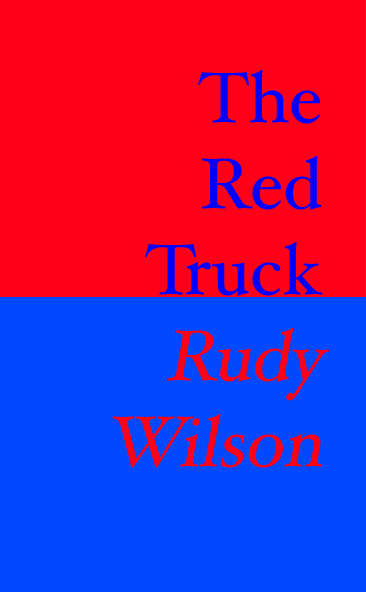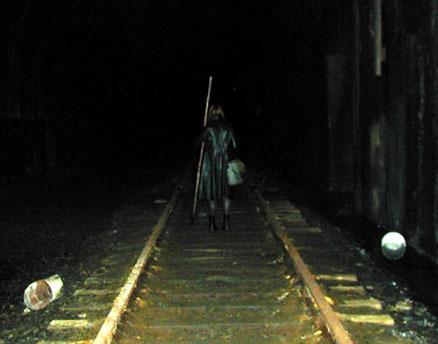TEATRO GROTTESCO BY THOMAS LIGOTTI
So for a while, whenever I looked at Amazon’s page for one of my own obscure books, the system recommended something called Teatro Grottesco by Thomas Ligotti. According to the unfathomable Amazonian formula, if you liked one, you might like the other. (Because both their covers feature masks?) Ligotti’s name came randomly to my attention other ways, too. I’d be searching for something unrelated and a relevant keyword would pop up in some message board post about Ligotti. I found a site devoted entirely to his work, which by then I realized had a hardcore cult following.
The work itself sounded Lovecraftian in content and style. I don’t like Lovecraft much. A purple writer with visceral but repetitive and fairly superficial ideas. But out of curiosity I finally bought Teatro Grottesco. I’m pleased to report that it’s fucking phenomenal.
Interview with Jeremy M. Davies
 I met Jeremy M. Davies in a hotel room. It was late—or early, depending. He came in with a whirl, holding a huge manuscript, wearing a lot of black, or charcoal, depending. As soon as Davies walked in, someone handed him some whiskey, then the whole group left.
I met Jeremy M. Davies in a hotel room. It was late—or early, depending. He came in with a whirl, holding a huge manuscript, wearing a lot of black, or charcoal, depending. As soon as Davies walked in, someone handed him some whiskey, then the whole group left.
The next time I saw Davies, he walked into a Mexican restaurant, late—not late in the evening, per se, but simply late. About an hour late. Whereas he did not walk in with a huge manuscript, he was wearing a lot of black, or charcoal, depending.
But enough about that. Jeremy Davies’s Rose Alley is dense with wit, charm, and dirty, dirty smut, disguised in lush, meandering metaphor. Although the story—if one can honestly call it a story—is set during the 1968 Paris student riots, the chapters jump to follow different characters all involved in a film. As I was reading this book, I emailed Jeremy & told him I forgot he was the author. To me, that’s one of the ultimate compliments. I mean: I read his book, knowing him, and I was so blown away I forgot he wrote it. But don’t take my word for it: Josh Cohen said this book was his favorite of 2009 from someone he knows; powerhouse demi-god Harry Mathews says, “You have no excuse for not reading this book;” the ever brilliant Steve Katz says, “He is an impeccable stylist who creates a richness full of Nabokovean Pynchonistics, totally original, dressed in wacky erudition.”
And so, without further ado, the interview:
Richard Brautigan Day at Coop’s Place!

Utter delight. Thanks, Dennis! & kudos to his guest-poster, Winter Rates.
PS- if WR’s rad day isn’t quite enough Brautigan for you, you wish to check out this essay I wrote on In Watermelon Sugar for LOST Magazine a while back.
Alec Niedenthal interviews Rudy Wilson
 [Please welcome once again the incredible Alec Niedenthal, our to-be next Giant, herein talking language in a quite incredible Facebook-based interview with Rudy Wilson. Enjoy. – BB]
[Please welcome once again the incredible Alec Niedenthal, our to-be next Giant, herein talking language in a quite incredible Facebook-based interview with Rudy Wilson. Enjoy. – BB]
I have Blake’s original post on the book, and Peter Markus’s write-up on the same, to thank for running me into Rudy Wilson’s masterful and wildly original The Red Truck. Or, I guess, for running The Red Truck into me. If I’m remembering right, after one or two editions on Knopf, The Red Truck stayed out of print until Ravenna Press reprinted it earlier this year alongside Wilson’s new collection, Sonja’s Blue. The Red Truck is Lish-edited. Lish cut about two-hundred pages out of the book and carve(re)d the sentences to his liking. Blah blah blah. The result–though I’m quite confident that the original manuscript has the same beating heart–is haunting, colorful, relentlessly strange; The Red Truck has a light and sinister southern music very much its own. This kind of writing, to me, counteracts the sordid history of the South; it is evil confronted by the sleeping noise of a brain-fucked boy (though a girl does eventually narrate, there is really no differentiation between voices), by the rhythm of his throat. Not dissimilar to Peter Markus’s boy-based songs, The Red Truck is the record of a boy shrouding violence in his sound.
Headache?
I had a headache the other day (hangover?) and remembered this video that got emailed around my program a few years ago: Rip Torn hitting Norman Mailer in the head with a hammer on the set of Maidstone. Read the comments of the poster for more info? If you haven’t seen it, then I hope you like it. If you have seen it, then I hope you enjoy it again.
Best Comment Exchange Ever?
Maybe the sommelier will pick this up later but: This just in: READ MORE >
Desert Island Reading: A Return to Beckett
 Right before Thanksgiving, I came down with some kind of one-off swine flu and convalesced at my parents’ house before leaving with them to spend the holiday in coastal Florida. The day we left, I had to teach all afternoon and leave directly after, leaving no time to collect the books from my house that I so dearly wanted to read at the beach (my glory box of 10 for $65 from Dalkey had just arrived). Instead, I had under 5 minutes to grab whatever I could from my parents’ house.
Right before Thanksgiving, I came down with some kind of one-off swine flu and convalesced at my parents’ house before leaving with them to spend the holiday in coastal Florida. The day we left, I had to teach all afternoon and leave directly after, leaving no time to collect the books from my house that I so dearly wanted to read at the beach (my glory box of 10 for $65 from Dalkey had just arrived). Instead, I had under 5 minutes to grab whatever I could from my parents’ house.
This seemed a bit like a realer, truer version of those desert-island lists people make. For if you were actually stranded, you wouldn’t be able to come up with an ideal reading list; you will be stuck with whatever is at hand. Luckily, my brother and I have both stashed at our parents’ books that we’d bought forever ago and hadn’t gotten around to reading or taking to our own places, so there were some good options–just zero time to pick carefully among them.
I ended up with, among other volumes, two French Dual Language books and Samuel Beckett’s Watt. By the time I arrived at the beach, my ambition of trying my hand at translating by covering up the English side of French books and then checking had dissolved. I felt a bit unequal to Watt, too. I’ve loved Beckett since I first saw some productions of his plays in Paris, and since then I’ve read a few other plays. But I’ve only read his novels in grad school, where the blows of Molloy, Malone Dies, and The Unnameable were softened by my most excellent teacher, David Gates.
Since then, I have felt, somehow, as if I couldn’t withstand Beckett’s prose on my own, the dead weight of his sentences, his spine-twisting anti-proverbs, the desolation, the threat. But there I lay, on a brilliantly sunlit balcony overlooking the Gulf of Mexico, staring into Beckett’s considerably less sunny universe. And now I’m going to try to convince you why you, too, should turn, or return, to Beckett, Watt specifically. READ MORE >
NABOKOV SMIRKING IN INTERVIEW (SORRY, KINGSLEY, I LOVE HIS TRICKS)
httpv://www.youtube.com/watch?v=Ldpj_5JNFoA
Every now & then I watch this interview purely for entertainment value. Nabokov. My dad gave me one of his books when I was twelve or thirteen, I think, and shortly thereafter I had a dawning-of-comprehension moment, like, this guy [my dad] might actually be pretty smart/have good taste. Which, while not quite a Nabokovian epiphanic moment, actually is a revelation to an adolescent.
I’ve long had the impression that a lot of folks in the HTMLGiant/indie lit crowd don’t care for Nabokov* or at least orient more toward Bukowski/Burroughs/Kafka & what I think of as the “Grits” (i.e. writers whose lifestyles are associated with gritty shit and/or whose writing prioritizes visceral response over sublimity), but I pretty much consider it axiomatic that VN was a genius and maybe the most skilled manipulator of the English language who ever lived. Also, nobody has ever been more successful at translating synesthesia into art. (Btw, do you know what “Martian colors” are? I call that as a title for a book.)
READ MORE >



